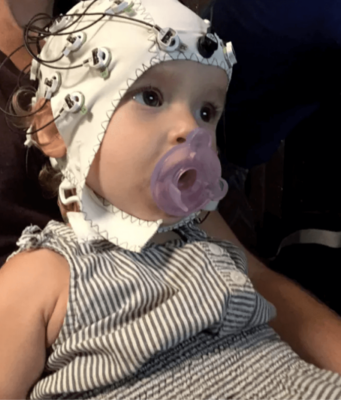Retroviruses are a type of virus that have a remarkable ability to integrate their genetic material into the host cell’s genome. This process can lead to the formation of endogenous retroviruses (ERVs), essentially viral DNA sequences present within an organism’s genome. ERVs can be transmitted to subsequent generations when present in germ cells and, as such, can significantly impact a species’ evolution.
While ERVs are widespread among vertebrates, most integrations are ancient and inactive. This means that the viral DNA sequences are present within the genome but are not actively producing new viruses. However, recent evidence suggests that ongoing retrovirus colonization occurs in certain species, shedding light on the intricate dynamics between viruses and their hosts.
Understanding the relationship between viruses and their hosts is critical for developing strategies to combat viral infections. By studying the mechanisms by which retroviruses integrate into host genomes and the factors that influence the activity of ERVs, researchers can gain insights into the evolutionary history of various species, as well as potential targets for antiviral therapies.
Background
A team of researchers led by the Leibniz Institute for Zoo and Wildlife Research (Leibniz-IZW) has made an exciting discovery related to the genome of a rodent species called the white-bellied mosaic-tailed rat, which is native to New Guinea. The team has uncovered a novel case of retrovirus integration in the genome of this rodent species. The study’s findings have been published in the “Proceedings of the National Academy of Sciences.“
The discovery is significant because it presents a new model for studying retrovirus-host interactions and genome evolution. The researchers believe their findings will help understand retroviruses’ genetic mechanisms, evolutionary history, and their interactions with host genomes. This could lead to new insights into the origin and evolution of viruses and contribute to developing new approaches for controlling viral infections.
Retrovirus Colonization
Retroviruses, including those responsible for diseases like AIDS, integrate into the host cell’s genome during infection. When this occurs in germ cells, the retrovirus becomes a heritable component of the host genome. The process of retrovirus colonization, while common across vertebrates, remains poorly understood due to the antiquity of most integrations. However, ongoing studies on the koala retrovirus (KoRV) provide insights into real-time retroviral colonization and its impact on host health.
New Guinea Rodents
Recent investigations revealed the presence of retroviral elements in rodents and bats from Papua New Guinea and Indonesia. The research team analyzed samples from various endemic species, identifying a retrovirus colonizing the genome of the white-bellied mosaic-tailed rat. This discovery marks only the second instance, after KoRV, of a retrovirus integrating into a host genome while retaining a functional viral life cycle in the Australo-Papuan region.
Gibbon Ape Leukemia Viruses (GALV)
Interestingly, the discovered retrovirus, closely related to KoRV, shares similarities with gibbon ape leukemia viruses (GALV) found in Southeast Asia. Despite geographic barriers, evidence suggests viral transmission between species, highlighting the complex interplay between viral ecology and host evolution. The findings imply a shared viral ancestry between New Guinea and Southeast Asia, challenging conventional biogeographic boundaries.
Clinical Implications
The discovery of retroviral colonization in New Guinea rodents presents an intriguing avenue for medical professionals to explore potential implications for human health. Understanding the mechanisms underlying retrovirus-host interactions and genome evolution could offer valuable insights into viral pathogenesis and oncogenesis. Moreover, identifying novel retroviral models, such as the “complete Melomys wooly monkey virus” (cMWMV), may inform the development of targeted therapies for retrovirus-associated diseases. By leveraging this recent case as a model system, medical professionals can advance our understanding of retroviral dynamics and identify new therapeutic strategies for combating human retrovirus-related illnesses.
Conclusion
Identifying retroviral integration in New Guinea rodents offers a rare glimpse into ongoing viral colonization events. As researchers delve deeper into the complexities of retrovirus-host dynamics, novel insights into genome evolution and disease emergence are poised to emerge. This study paves the way for future investigations into the role of retroviruses in shaping host genomes and ecosystems, highlighting the need for continued vigilance in monitoring viral diversity and its impact on wildlife populations.
Furthermore, this recent case presents a valuable opportunity for medical professionals to enhance their understanding of retroviral infections and their potential implications for human health. By studying the mechanisms underlying retrovirus colonization in real time, clinicians can gain valuable insights into the pathogenesis of retroviral diseases and develop innovative strategies for diagnosis, treatment, and prevention. The lessons from this research inform the development of novel therapeutics and interventions to combat retroviral infections in wildlife and human populations.
Reference
Saba Mottaghinia, Stenzel S, Kyriakos Tsangaras, et al. A recent gibbon ape leukemia virus germline integration in a rodent from New Guinea. Proceedings of the National Academy of Sciences of the United States of America. 2024 Feb 1;121(6). DOI: 10.1073/pnas.2220392121
About Docquity
If you need more confidence and insights to boost careers in healthcare, expanding the network to other healthcare professionals to practice peer-to-peer learning might be the answer. One way to do it is by joining a social platform for healthcare professionals, such as Docquity.
Docquity is an AI-based state-of-the-art private & secure continual learning network of verified doctors, bringing you real-time knowledge from thousands of doctors worldwide. Today, Docquity has over 400,000 doctors spread across six countries in Asia. Meet experts and trusted peers across Asia where you can safely discuss clinical cases, get up-to-date insights from webinars and research journals, and earn CME/CPD credits through certified courses from Docquity Academy. All with the ease of a mobile app available on Android & iOS platforms!







